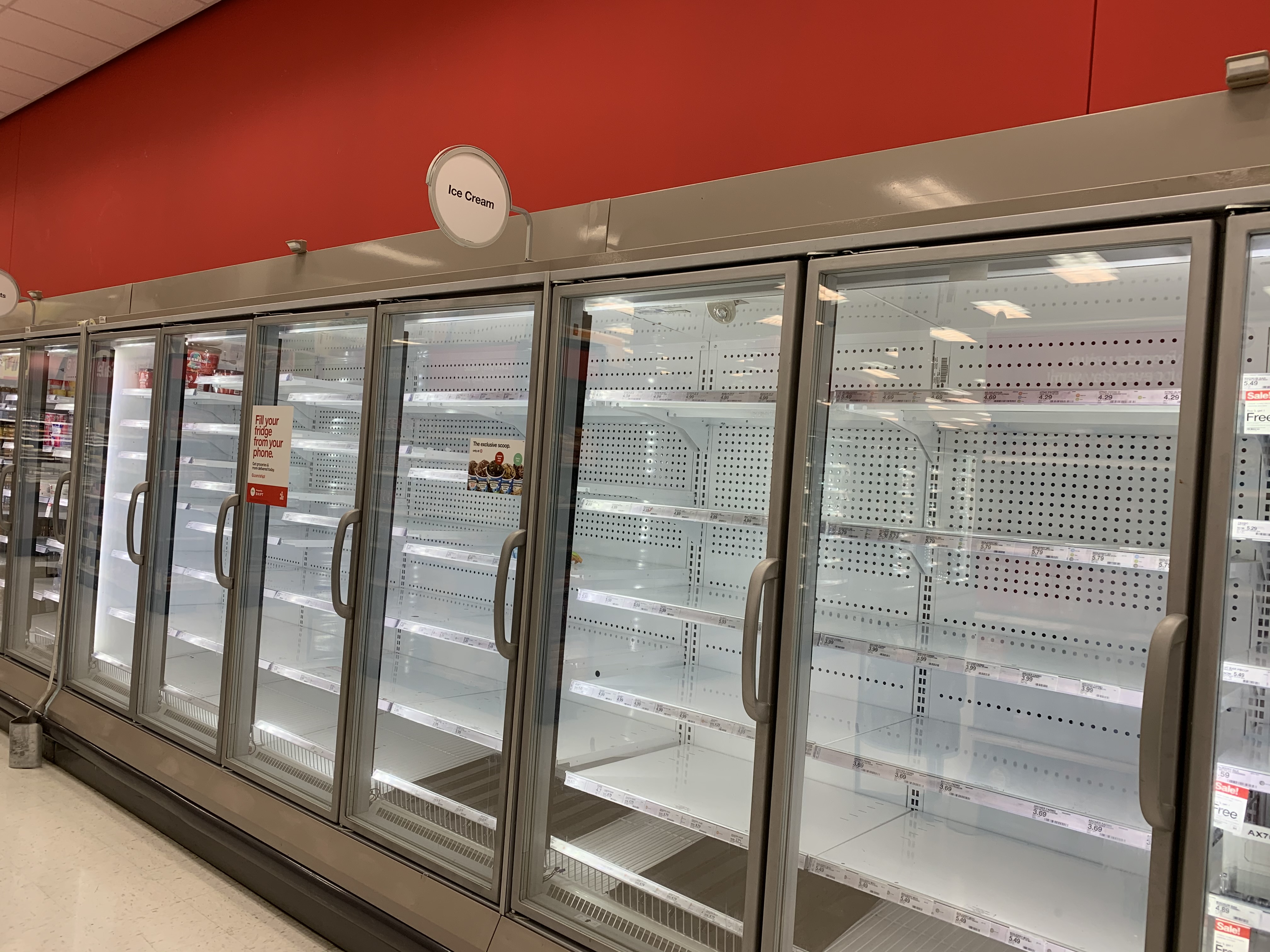A Note from the Director–The Chain Newsletter, Spring 2020
In normal days, the supply chain is content to hum along, humbly minding its own business, disregarded by a world wholly reliant on it. But last week a cheery couple walked the aisle of a grocery store, stocking up on this and that, never thinking of the complicated supply chain that brought these goods into their cart. Until they come upon the ice cream section and the husband exclaimed, “Oh no! This is worse than the toilet paper shortage!!!”
We watched the couple in our local grocery store last week—from a safe distance, of course—and listened as they expressed concern about the supply chain, though, of course, they did not use that term. In normal days, the supply chain is ignored. These are not normal days, and the supply chain is front and center for many people now.
We have been writing a book about the U.S. and China and so have been paying even closer attention to China than usual since October. In late December we first started reading about a mysterious pneumonia in Wuhan, China. We read and watched what became known as Covid-19 decimate the largest city in Hubei Province and examined China’s draconian response to confront the pandemic. That meant we saw what was happening to China’s economy and the supply chain before most people. In mid-February, during drinks at our favorite local watering hole, we said to a friend about what was going on in China, “This is going to effect supply chains more than any event since September 11.”*
Nothing has changed our mind since. As the virus spread throughout the world, shutting down large parts of Europe, Asia, the United States, and now Africa and South America, the human and economic toll can easily make one despair. Indeed, the occasional story of price gauging or racial or nationalist prejudice makes us wish for a stiffer drink from that mid-February watering hole. But, it is, of course, currently closed. And besides, even as there is much to stress over, the supply chain also offers hope and lessons.
Supply chains are all about coordination and working together for the greater whole. There is currently much pushback against globalization and globalized supply chains. Our globalized world might have made a pandemic more possible (although 1918 says “hold my Corona beer) but a globalized response is the only way out of the pandemic. One country cannot solve their way out of the pandemic. It will take the world working together to do that. Supply chains are strained, especially medical supply chains, but they are evolving to meet the challenge. Ice cream may have been sparse in that grocery store last week but this week we notice it is back in stock. Supply chains will lead us out of the current crisis, including ones for the vaccine that will eventually be developed and need to be distributed worldwide. The once ignored supply chain is now on everyone’s mind.
Supply chains will change which means training for the workers in the supply chain will also need to evolve. We are already seeing that short-term with classes moving online. The Chain and our Center will continue to provide you information as the world adjusts, including in this issue, on our website and social media platforms. We are working on a number of projects and grants to improve the workforce development system. Stay tuned for more news on all of this. In the meantime, we recommend a bowl of Dulce De Leche.
– Sam Kaplan, Director, Center of Excellence for Global Trade & Supply Chain Management, Highline Community College



